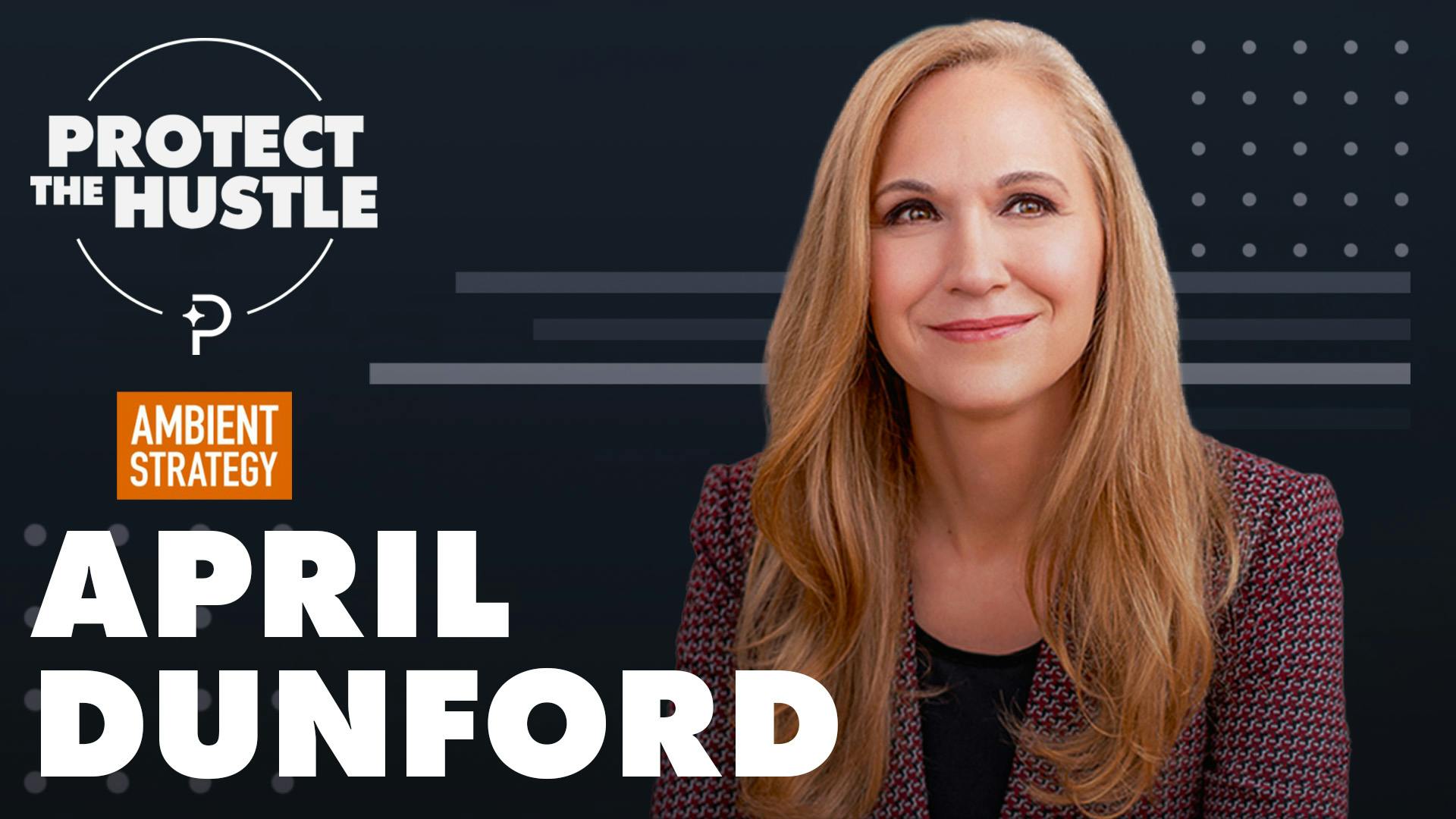
Annual Plans Reduce Churn Dramatically, Data Finds
This episode might reference ProfitWell and ProfitWell Recur, which following the acquisition by Paddle is now Paddle Studios. Some information may be out of date.
Originally published: January 29, 2019
The beauty of the subscription model is that for the first time in the history of business, relationships are baked directly into how you make money. Every month, year, or however long the term of the subscription is, your customer has a decision to make around if they’re receiving the value for which they’re paying.
If they don’t feel like they’re getting value, then they’ll churn. If they do feel they’re getting value, they’ll renew.
But first, if you like this kind of content and want to learn more, subscribe to get in the know when we release new episodes.

Having a longer term length or an annual subscription can make this easier on you, because the customer is making a deeper commitment that allows you to plead your value case with enough time to show value. Hence why annuals can be instrumental in lowering churn and ramping growth.
Annual subscriptions as a proportion of overall subscriptions shift wildly depending on your ARPU, with low ARPU companies seeing over 50% of their subscriptions on annual plans, mid-range ARPU companies dropping down to roughly 20-30% of their subscription coming from annuals, and then high ARPU companies swinging back to a high proportion of annuals.

This feels pretty intuitive, because low ARPU companies have annual subscriptions that are nice round credit card numbers where a customer is more than willing to swipe for a $100 annual charge. On the high end, you’re likely looking at a mid-market or enterprise type deal, so an annual contract is simply baked into the sales cycle.
That being said, this is descriptive in nature, so what’s the data say around what works and what doesn’t? Well, annuals do reduce churn pretty substantially, because your customers have one purchasing decision per year versus twelve. Keeping track of your annual contract value (ACV) closely and proactively reducing churn before it happens is key to maintaining a healthy business.
As you can see in this data, there’s a strong correlation indicating that as you increase your annuals, you’ll be reducing your churn with folks with the majority of their contracts as annuals seeing almost a fifth of the churn as those who don’t have annuals.

Ultimately, more annuals are likely better, especially given the churn implications, so I’d push for optimizing those relationships by understanding where the best point to ask for an annual upgrade is within your customer’s lifecycle.
For most businesses, it’s probably not directly in the initial buying cycle, because your customer doesn’t know about your product quite yet, so some research absolutely needs to be done about your company specifically.
That's all for this week. Want to learn more? Check out our latest episode Does Content Marketing Work? and subscribe to the show to get new episodes.

1
00:00:00,320 --> 00:00:03,520
You've got the questions
and we have the data.
2
00:00:03,520 --> 00:00:06,620
This is the ProfitWell Report.
3
00:00:08,435 --> 00:00:09,715
What's up? It's Brendan.
4
00:00:09,715 --> 00:00:12,035
Quick question for you
on this fine morning.
5
00:00:12,035 --> 00:00:16,095
What portion of our subscription
should be monthly versus annual?
6
00:00:16,250 --> 00:00:17,290
Thanks.
7
00:00:17,290 --> 00:00:20,090
Welcome back, everyone. Neil
here for the ProfitWell Report.
8
00:00:20,090 --> 00:00:22,810
The beauty of the subscription
model is that for the first
9
00:00:22,810 --> 00:00:25,030
time in the history of business,
10
00:00:25,035 --> 00:00:28,075
relationships are baked directly
into how you make money.
11
00:00:28,075 --> 00:00:29,595
Every month, year,
12
00:00:29,595 --> 00:00:32,395
or however long the term
of the subscription is,
13
00:00:32,395 --> 00:00:35,460
your customer has a decision
to make around if they're
14
00:00:35,460 --> 00:00:37,380
receiving the value for
which they're paying.
15
00:00:37,380 --> 00:00:40,260
If they don't feel like
they're getting value, then they churn.
16
00:00:40,260 --> 00:00:42,995
If they do feel like they're
getting value, they'll renew.
17
00:00:42,995 --> 00:00:46,115
Having a longer term length or
an annual subscription can make
18
00:00:46,115 --> 00:00:49,075
this easier on you because the
customer is making a deeper
19
00:00:49,075 --> 00:00:52,030
commitment that allows you
to plead your value case with
20
00:00:52,030 --> 00:00:53,870
enough time to show value.
21
00:00:53,870 --> 00:00:59,045
Hence, why annuals can be instrumental
in lowering churn and ramping growth.
22
00:00:59,045 --> 00:01:03,045
To answer this, we looked at over two
and a half thousand subscription and
23
00:01:03,045 --> 00:01:04,085
SaaS companies.
24
00:01:04,085 --> 00:01:05,685
As to not bury the lead,
25
00:01:05,685 --> 00:01:08,000
annual subscriptions as
a proportion of overall
26
00:01:08,000 --> 00:01:11,520
subscriptions shifts widely
depending on your ARPU with low
27
00:01:11,520 --> 00:01:13,840
ARPU companies seeing over
fifty percent of their
28
00:01:13,840 --> 00:01:15,875
subscriptions on annual plans,
29
00:01:15,875 --> 00:01:18,275
mid range ARPU companies
dropping down to roughly twenty
30
00:01:18,275 --> 00:01:20,675
to thirty percent of their
subscriptions coming from annuals,
31
00:01:20,675 --> 00:01:23,155
and high ARPU companies
swinging back to a high
32
00:01:23,155 --> 00:01:24,195
proportion of annuals.
33
00:01:24,195 --> 00:01:27,360
This feels pretty intuitive
because low ARPA companies have
34
00:01:27,360 --> 00:01:30,480
annual subscriptions that are
nice round credit card numbers
35
00:01:30,480 --> 00:01:33,120
where a customer is more
willing to swipe for a hundred
36
00:01:33,120 --> 00:01:34,240
dollar annual charge.
37
00:01:34,240 --> 00:01:35,215
On the high end,
38
00:01:35,215 --> 00:01:37,775
you're likely looking at a mid
market or enterprise type deal,
39
00:01:37,775 --> 00:01:40,655
so an annual contract is simply
baked into the sales cycle.
40
00:01:40,655 --> 00:01:43,080
That being said, this
is deceptive in nature.
41
00:01:43,080 --> 00:01:46,600
So what's the data say around
what works and what doesn't work?
42
00:01:46,600 --> 00:01:50,655
Well, annuals do reduce churn
pretty substantially because your
43
00:01:50,655 --> 00:01:53,695
customers have one purchasing
decision per year versus twelve.
44
00:01:53,695 --> 00:01:55,135
And as you see in this data,
45
00:01:55,135 --> 00:01:58,815
there's a strong correlation indicating
that as you increase your annuals,
46
00:01:58,815 --> 00:02:02,320
you'll be reducing your churn with folks
with the majority of their contracts'
47
00:02:02,320 --> 00:02:04,880
annuals seeing almost a fifth
of their churn as those who
48
00:02:04,880 --> 00:02:06,160
don't have annuals.
49
00:02:06,160 --> 00:02:09,005
Ultimately, more annuals
are likely better,
50
00:02:09,005 --> 00:02:10,845
especially given the
churn implications.
51
00:02:10,845 --> 00:02:14,365
So I push for
optimizing those relationships by understanding
52
00:02:14,365 --> 00:02:16,980
where the best point to ask
for an annual upgrade is within
53
00:02:16,980 --> 00:02:18,180
your customer's life cycle.
54
00:02:18,180 --> 00:02:19,380
For most businesses,
55
00:02:19,380 --> 00:02:22,020
it's probably not directly
in the initial buying cycle
56
00:02:22,020 --> 00:02:25,305
because your customer doesn't
know about your product quite yet.
57
00:02:25,305 --> 00:02:28,105
So your research absolutely needs
to be done about your
58
00:02:28,105 --> 00:02:29,545
company specifically.
59
00:02:29,545 --> 00:02:30,985
Well, that's all for now.
60
00:02:30,985 --> 00:02:32,105
If you have any questions,
61
00:02:32,105 --> 00:02:35,910
feel free to send me an email
or video to neil at dot com.
62
00:02:35,910 --> 00:02:39,030
And if you enjoyed this report and
get value out of it or any
63
00:02:39,030 --> 00:02:40,070
of the other episodes,
64
00:02:40,070 --> 00:02:42,310
we'd love for you to share it
on Twitter and LinkedIn because
65
00:02:42,310 --> 00:02:44,155
that's how we know
to keep going.
66
00:02:44,155 --> 00:02:46,295
Thanks. See you next week.
67
00:02:47,755 --> 00:02:50,458
This week's episode is
brought to you by SendLoop.
68
00:02:50,458 --> 00:02:51,818
Simple, affordable,
69
00:02:51,818 --> 00:02:55,178
and the most effective email
marketing software around.
70
00:02:55,178 --> 00:02:56,963
SendLoop dot com.






